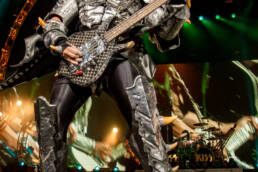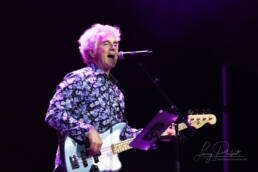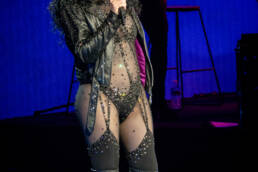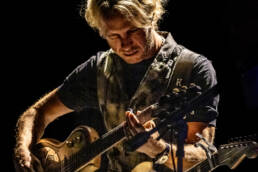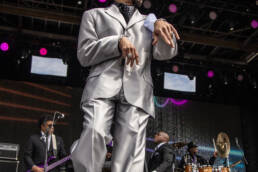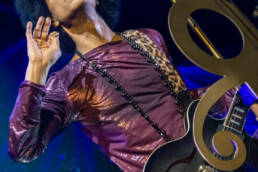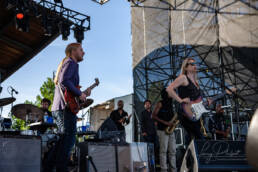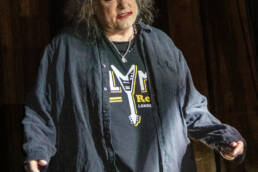The BoDeans: Heartland Rockers Chasing the American Dream
Imagine two scrappy kids in Waukesha, Wisconsin, late ‘70s snow piling up outside, their guitars buzzing in a basement as they dreamed of a sound bigger than their blue-collar town. For The BoDeans—born from Kurt Neumann and Sam Llanas—music wasn’t just a career; it was a pact, a vow to blend roots rock with a restless spirit and carve a path out of the Midwest’s rust and frost. What drove them to pursue it? It was the echo of Springsteen in their ears, the grit of bar gigs in their veins, and a shared hunger to tell stories of love, loss, and longing that could ring true from Milwaukee to the world. That fire lit a band whose harmonies still hum with heartland soul.

From Waukesha to the World
The BoDeans’ roots dig deep into Wisconsin soil. Kurt Neumann (born October 9, 1961, Milwaukee) grew up in a working-class clan—dad a truck driver, mom a nurse—his hands on a guitar by 12, idolizing The Beatles and The Byrds. Sam Llanas (born February 6, 1961, Waukesha) was the foil—son of a factory worker, his voice a raspy howl shaped by choir and Dylan records. They met at Waukesha South High, class of ’79, jamming in garages, their chemistry instant. Post-grad, they hustled—Kurt in a warehouse, Sam at odd jobs—until 1981, when they formed Da BoDeans with drummer Guy Hoffman and bassist Bob Griffin.
A local buzz grew—gigs at Shank Hall, covers of Petty and Stones morphing into originals. By 1985, Slash Records signed them, trimming the name to The BoDeans. Their debut, Love & Hope & Sex & Dreams (1986), produced by T Bone Burnett, broke them wide—a raw, rootsy gem that hit the college rock circuit hard.
A Career of Harmony and Hardship
The BoDeans’ peak was their original quartet—Kurt Neumann (vocals, guitar), Sam Llanas (vocals, guitar), Bob Griffin (bass), Guy Hoffman (drums)—a lineup that defined Outside Looking In (1987) and Home (1989). Hits like “Only Love” and “You Don’t Get Much” built a cult, amplified by The U2 Connection—their “Closer to Free” backing Bono’s crew on tour. Hoffman split in ’87 for Violent Femmes; Michael Ramos (keys) and Kenny Aronoff (drums) filled gaps, but Black and White (1991) marked their commercial crest.
Sam’s 2011 exit—creative clashes, personal strain—rocked the boat; Kurt soldiered on, rebuilding with Jake Owen (guitar), David Sierra (drums), and Bukka Allen (keys). Albums like American Made (2012) and I Can’t Stop (2015) kept the flame. No side bands—Kurt’s solo Shy Dog (2021) aside—but they’ve backed Robbie Robertson and John Mellencamp. Relationships? Sam dated local singer Robin Zander’s sister briefly; Kurt’s kept it quiet, married with kids. On screen, “Closer to Free” was Party of Five’s theme (1994-2000), and they hit Austin City Limits and Letterman. Their music’s in The Big Short and The West Wing.
Awards? No Grammys, but Love & Hope went gold, and they’ve nabbed Wisconsin Area Music Industry Awards. No Hall of Fame yet—roots rock’s underrated fate—but fans push.
Here’s a rundown of their biggest hits:
- “Closer to Free” – Written by Kurt Neumann and Sam Llanas, this 1993 No. 16 hit soared via Party of Five.
- “Only Love” – Penned by Neumann and Llanas, this 1987 No. 16 Mainstream Rock track burns bright.
- “You Don’t Get Much” – Co-written by Neumann and Llanas, this 1989 No. 20 Mainstream Rock cut aches.
- “Good Things” – Crafted by Neumann and Llanas, this 1991 fan fave hit No. 25 on Modern Rock.
Controversy in the Heartland
The BoDeans’ drama peaks with Sam’s 2011 departure—announced mid-tour, he ghosted a Milwaukee gig, leaving Kurt to face 3,000 fans solo. “Creative differences” was the line, but whispers of ego and money swirled; Sam’s solo 4 A.M. (2011) felt like a jab. A 2013 lawsuit—Sam sued Kurt over royalties—settled quietly, but the rift’s raw. In 1996, a near-fatal van crash on I-94—Kurt broke ribs, Griffin a wrist—halted a tour; tabloids spun it as “rock excess,” though it was just ice. Their ‘80s bar brawls—Sam’s temper flaring—faded into lore, no charges, just bruised knuckles. Controversy’s there, but it’s the music that lingers.
A Night of Snow and Soul: Milwaukee, 1986
Let’s rewind to December 20, 1986, at Milwaukee’s Riverside Theater—a 2,500-seat gem, snow blanketing the streets, Love & Hope & Sex & Dreams six months old and climbing. The BoDeans were hometown heroes—Kurt in a flannel, Sam’s hair wild, Griffin’s bass thumping, Hoffman’s sticks flying. They opened with “Fadeaway,” the room erupting, beers sloshing. Mid-set, “Only Love” hit, and a blizzard knocked the power—darkness, gasps, then silence. Kurt strummed unplugged, Sam’s voice cutting through, “Don’t need lights to feel this one!”—the crowd sang back, a sea of lighters flickering.
A janitor rigged a generator 15 minutes in; lights flared mid-“She’s a Runaway,” and they roared into “Good Work,” sweat-soaked, defiant. A fan tossed a Packers cap onstage—Kurt caught it, wore it, and grinned, “This is Wisconsin rock, y’all!” They closed with “Misery,” stretching it raw and long, the storm howling outside. “That night,” Kurt told OnMilwaukee, “we proved we could roll with anything.” No pro tape exists—just a fuzzy bootleg, “The Blizzard Bash”—a gritty, glorious snapshot of their rise. Griffin later said, “It was us against the world, and we won.” Fans still trade tales of that frozen triumph, a BoDeans badge of honor.
The BoDeans’ saga is Midwest muscle—two Waukesha dreamers who built a sound from heartache and hope. From basements to big screens, Kurt and Sam (and now just Kurt) have kept the roots rocking. Catch them in 2025, and you’ll feel that heartland pulse, still beating fierce and free.
